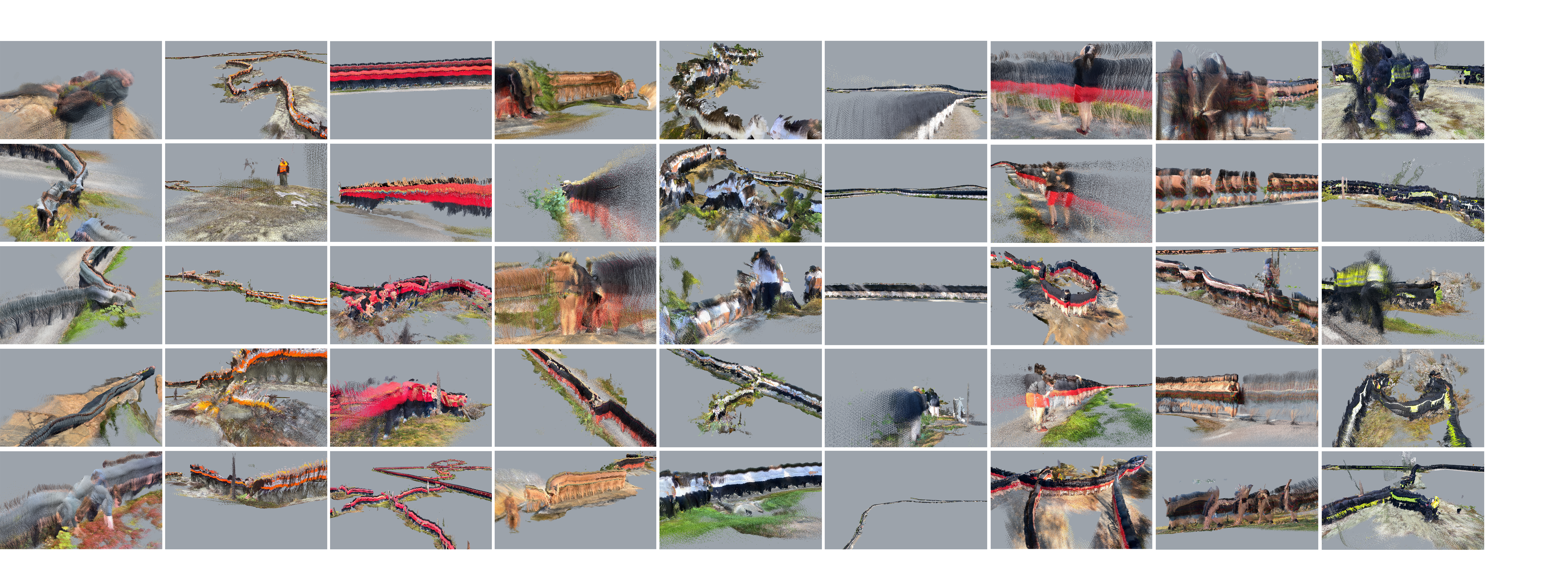Each walk begins from the BKN starting point, with the leading artist responding to prompts designed to encourage either a sense of isolation or connection. The shadow follows, documenting the walk while adjusting to the leader’s actions—whether they choose to stop, sit, climb, or engage with their surroundings. The dynamic nature of the landscape and the artist’s movements are captured through the use of LiDAR scanning and MapMyWalk app, transforming the experience into a digital map and immersive video installation.
This project responds to the residency theme of Walking as Anticipation, exploring
how we move through space with the expectation of something unknown, unpredictable, or revealing
and
how the act of walking can reveal unanticipated connections between people, space, and time
In an era defined by climate change, artificial intelligence, and shifting political landscapes, _Shadow Walk_ highlights how anticipation operates as a strategy for navigating uncertain futures. By using an interdisciplinary, multi-scalar approach, the project emphasizes the importance of diverse perspectives in understanding and envisioning the world we are moving toward.
At its core, my shadow walk project is built on the tension between solitude and connection, two states that are often in flux during a walk. The artist I follow anticipates my presence as a shadow, and I, in turn, anticipate their choices—whether they seek moments of solitude or closeness to the surroundings. This mutual anticipation creates a silent, unspoken dialogue. Every step is charged with the possibility of connection or retreat, with anticipation acting as the thread between the two.
Emotionally, anticipation manifested as a complex affect during the walk. As I followed each artist, I was attuned to their body language, feeling the tension of not knowing their next move and yet being tethered to their choices. This waiting, this quiet anticipation, became a kind of shared vulnerability. The walks revealed not only how anticipation shapes the experience of space but also how it influences our emotional responses to connection and isolation, intensifying feelings of belonging or solitude.
In the Shadow Walk, although the intention was not to create a single-gendered experience, the fact that all the participants—both the walkers and the shadows—were female deeply influenced how anticipation was experienced and embodied. Anticipation, in this context, became an expression of diverse female perspectives, shaped by the walkers' cultural backgrounds, physicalities, and expertise.
Our physical engagement with the island’s landscape—its sea, forest, and topography—was a deeply embodied experience. As women with different bodies, we navigated this terrain with anticipation rooted in our individual physical abilities and limitations, as well as our gendered understanding of the natural world. The act of walking itself became a gendered negotiation of space, where each woman anticipated her movement through natural and cultural landscapes. Whether climbing, sitting, swimming or smelling the environment, our movements reflected a female bodily presence engaging with the land in ways that might contrast with more traditionally masculine or neutral approaches to exploring space.
The prompts of seeking solitude or connection took on distinct resonances within a gendered framework. Anticipation of solitude for some of the participants may have evoked feelings of empowerment, where being alone in nature offered a moment of reprieve or reclamation of space, while for others, solitude might have carried a more complex sense of vulnerability. In this way, the anticipation of solitude was not neutral but filtered through gendered experiences of safety, freedom, and self-reliance.
On the other hand, the anticipation of connection might have been informed by a sense of relationality that can be culturally ingrained in female experiences. The idea of moving toward connection—whether with nature, other participants, or oneself—was embedded with the possibility of nurturing and care. The anticipation of connection, therefore, became a way of exploring the invisible bonds between women, space, and nature, shaped by cultural and physical differences.
I do think as the shadow, I inhabited a space of constant anticipation, reacting to the artist's actions, pauses, and interventions. Each gesture from the artist triggered a moment of anticipation, forcing me to consider how to adjust your own movements, positioning, or scanning.
During my residency, anticipation extended to the collaborative dynamic between me and the other artists. I invited them to guide the walk, but I couldn’t predict their choices. Anticipation became a form of trust, allowing the artist to shape the experience while you remained open to their decisions. This sense of collaborative anticipation enriched the process, as both the artist and I navigated an unfolding relationship shaped by movement, space, and silence.




